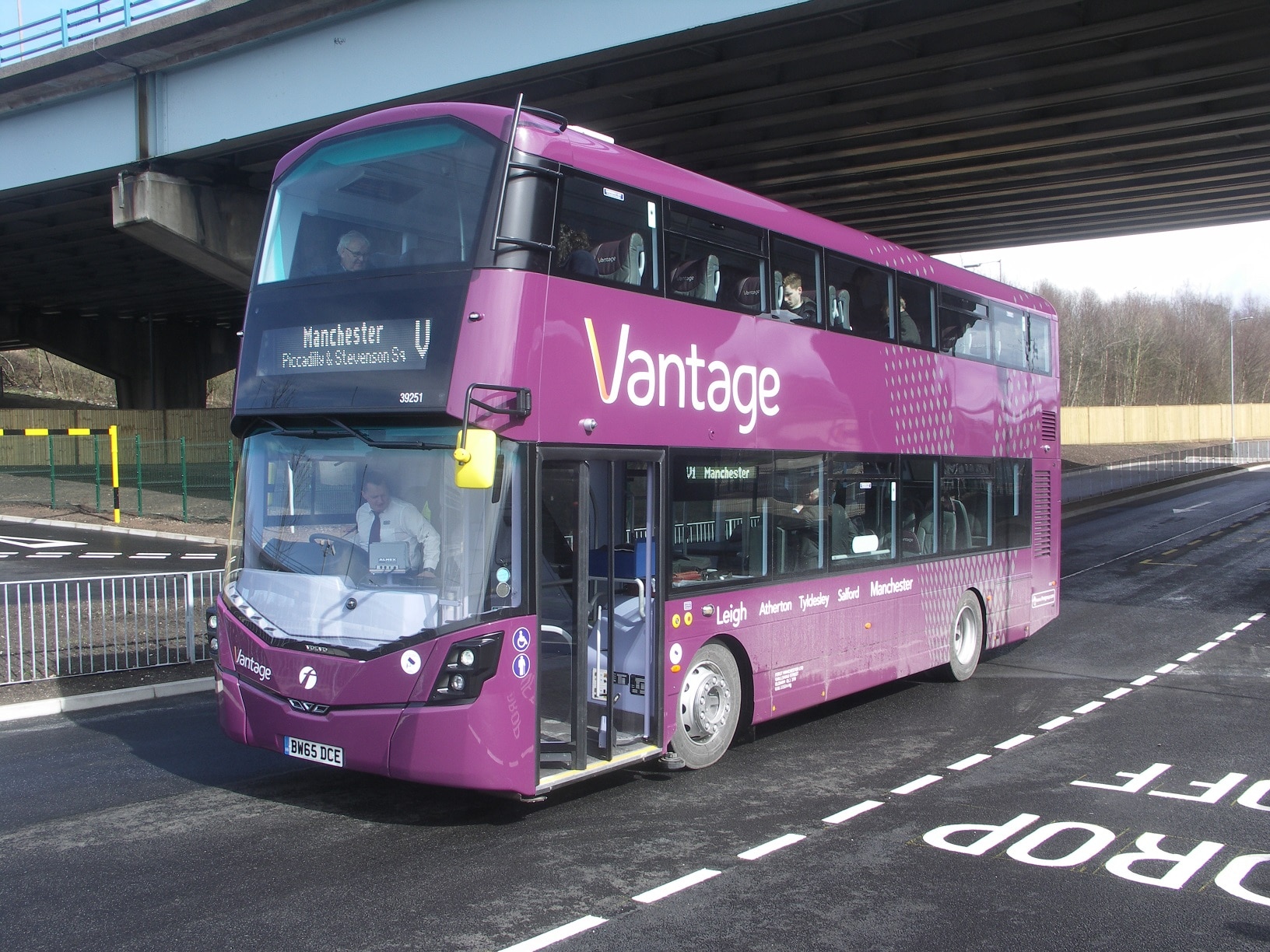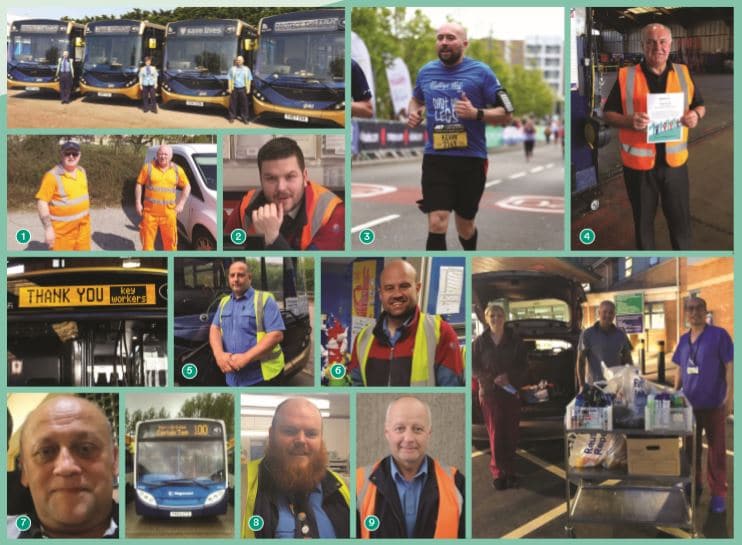A collapse in patronage has necessitated support from central government to maintain core bus services across the UK. As a new tranche of funding arrives, Strategy Director at First Bus, John Dowie, considers how government and operators have worked together in the past to grow passenger use, the current coronavirus COVID-19 crisis and how the industry might prosper after the pandemic
One of John Dowie’s greatest learnings as Strategy Director for First Bus has been the challenge of delivering true partnership between operator and local government.
John joined First Group in 2016 after 10 years’ experience in the Department for Transport (DfT). “It’s much easier to talk about partnership than do it,” he begins. “It requires compromise and trade-offs will often be required. And from the operator’s perspective, it requires a degree of openness and transparency which will be uncomfortable.
“Being honest about where we are struggling on service delivery or other issues is uncomfortable for professionals who have pride in the job they do day in, day out.”
The sector has just secured a further tranche of coronavirus COVID-19 support to assist the return of services up to as near as pre-virus levels as operators can reasonably manage – and this once again raises questions of what the UK bus industry’s new ‘normal’ is going to look like during and after the pandemic.

False dawns
Operators have a crucial role to play in reversing the long-term decline in bus patronage, through the network offer, reliable performance and a focus on customer channels.
Local authorities have often found it easy to blame operators and commercial pressures for these issues yet have done little themselves in terms of demand management. From the operator’s perspective, partnership means action on bus priority – and when asked, John finds it difficult to point to many examples of best practice. High profile schemes can be very successful, but they are expensive and are often localised in their effects. Examples include the Leigh-Salford-Manchester Bus Rapid Transit scheme in Greater Manchester, or the Cambridgeshire Guided Busway. But these do not deliver effective bus priority strategies at an all-city level. Developments of Edinburgh’s green lanes in the 1990s was a ‘brilliant example of the all-city approach’ according to John, but that system suffered from a lack of investment over the years that followed to maintain its effectiveness.
However the last few years have begun to see a “change in the quality of dialogue,” he adds. “I would point in particular to the partnership deal with Leeds City Council, which has been exemplary in translating the dedicated pot that the DfT has given it for bus priority into systematic interventions across six bus corridors.”
At the level of policy chit chat, the importance of the role of buses in societal improvement has gained traction over recent years. But therein lies the problem, says John – as talk alone does not lead to effective measures. Wariness among public authorities about taking action that might affect motorists has visibly limited the transformational impact of clean air zones across England and low emission zones in Scotland. “A strategic, concerted attempt by central government via local government to address the ambient air quality problem in England and Scotland’s major cities could have resulted in action on all of the transport fleet,” he explains. The whole vehicle parc is responsible, after all. Yet as things stand, few local authorities are taking action on the private car – The only major steps in this direction are the planned charge on cars entering Birmingham city centre, Bristol’s proposed diesel car ban in the immediate city centre and possible charging of cars in Glasgow later in the 2020s.
“That’s a striking illustration of the longstanding national and local reticence about taking decisive action,” John says. The outcomes from the air quality debate have thus been modest. The £1.7bn Transforming Cities Fund, announced in 2017, in many ways learned from and tried to replicate the Leeds example – and could have been as a game changer owing to the serious levels of money involved. “I was genuinely hopeful for serious bus priority and demand management,” adds John. “I think the honest truth is that a huge amount of money was committed to a very mixed outcome – improvements to bus priority were not sustained in practice.”
Yet more tragically, where local authorities did try to realise bus priority, economic arguments on the disbenefits towards private cars saw those initiatives knocked back. “That did seem quite extraordinary in 2020 – to still be wrestling with an appraisal system that counts a policy choice in terms of modal shift as a disbenefit,” John says.

COVID-19 – the spur for meaningful change?
Will decarbonisation be the potential game changer for which we are all looking? John is reluctant to pronounce it as the sought after miracle solution to realising the potential of bus, not least because of the precedent set by the disappointing gains for bus as a result of the air quality and transforming cities debates. But the raw ingredients for a decisive step change are now present.
National government has been setting ambitious statutory targets and climate emergencies have been declared by local government up and down the country. Research, development, and innovation in vehicle technologies combined with brave choices on bus priority and demand management could finally undermine the untouchable status of private car use. But unless chances are taken on bus, John reiterates that it is difficult to see how carbon rhetoric can turn into real targets set and achieved.
Looking ahead, he believes we will journey through two distinct stages. The first is while coronavirus COVID-19 is present. This will be a turbulent period where guidance for social distancing will prove a challenge for wider society and not just bus operators. Government support will be essential if operators are to run credible services while running as little as 25% of our their pre-COVID capacity.
The second period is when, hopefully, the virus is eliminated through widespread adoption of a vaccine and social distancing can be removed. That is when Britain may discover its ‘new normal’. What we return to is unlikely to be the situation the bus industry knew in January 2020, John believes, but will likely involve significant changes in demand, affecting different segments of a customer base in very different ways.

Some users will be ‘left behind’, believes First
With the government currently supporting the industry in putting on the best possible service, First has already readied over 90% of its fleet to return to the road and will further increase that over the coming days. That, John says, will allow connectivity to be restored in part at least. Meeting the needs of social distancing has however proved far from straightforward. Like most larger operators it has come to the view that 25% passenger capacity strikes the balance between health guidance and the need to run a credible service.
The decision to limit boardings has been an ‘extraordinarily difficult’ judgment, and one that neither First nor the entire sector has come to easily, As John explains – it may ultimately mean people being left at stops.
Questions remain about what time of day and where passenger numbers pick up; operators will need to be agile if they are to respond to emerging demand. “It will undoubtedly mean in many places across the country, hard decisions will have to be made where provision of seats is concentrated – it may not be the network we had pre-coronavirus COVID-19.”
This is a hard thing for men and women who have spent their careers maximising passenger numbers and serving communities to swallow. In the short term, though operators will endeavour to carry as many people as is consistent with social distancing guidance, John expects it will not take much of an easing before the industry is maxed out.
The uncertain issue – and one which has as many views as people to discuss it – is what happens when coronavirus COVID-19 is no longer a concern. That may be wishful thinking on John’s part, which he himself admits – but shifting work patterns will hit some markets, while others may bounce back. Changes that have been building for some time – for example the decline in bricks-and-mortar retail – may be accentuated. “That is a huge issue, and one that is in a way bigger and longer term than the pandemic,” John adds. “We can all speculate, but we may well require a rethinking of bus marketing, targeting different passenger groups and geographies. There are many uncertainties here, but one thing is certain, it undoubtedly will lead to change.”

The winds of change
One thing most can be certain of is that coronavirus COVID-19 is going to stick around for now. It will take time to establish the ‘new normal’ many are speaking of, and the long-term and unknown change that will result will prove a challenging time during which the bus industry will have to be agile and responsive. Maintaining the status quo will not work, John believes – especially if passengers decide to change their behaviour.
And yet, with the combination of post-coronavirus COVID-19 ‘new normal’ and the decarbonisation pressures, will it force the government’s hand in a remodelling of urban spaces and the role of public transport within them? John believes it can. “We have to harness the opportunity of a fresh start now,” he says. “Because the risk is that the old normal of private car priority will quickly return, and that will make it much harder to redesign our city centres.
“The industry cannot hang onto the old ways. The major challenges of coronavirus COVID-19 will force new beginnings.”



























